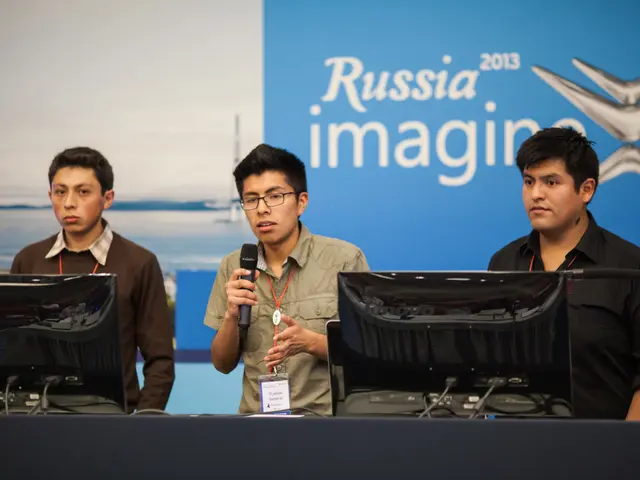Refresh: Seven training courses to be updated in August
In a significant shift, German vocational training is undergoing a transformation to equip apprentices and professionals with the skills necessary to thrive in the digital age. The Vocational Training Act (Berufsbildungsgesetz, BBiG) and related frameworks are driving this change, focusing on digitalization, sustainability, and modern manufacturing techniques.
The Vocational Training Act regulates dual vocational training, a system that combines practical and school-based components. The training regulations (Ausbildungsordnung) specify job profiles and training/examination standards. These regulations are being updated to include new competencies related to digital tools, sustainability practices, and advanced manufacturing technologies.
The dual system of training is integrating modern digital technologies such as IoT, AI, robotics, and additive manufacturing, reflecting broader economic shifts toward Industry 4.0 and smart factory concepts. This is supported by Germany's strong digital transformation market, which actively involves training in IoT integration, AI/machine learning for predictive quality control and optimization, and extended-reality training tools to enhance practical skills.
Sustainability aspects are increasingly embedded in vocational training, consistent with regulatory trends such as the German Supply Chain Due Diligence Act (LkSG), effective since 2023. This law imposes corporate accountability for human rights and environmental protection along supply chains, likely influencing the content of professional training about compliance, sustainability standards, and responsible production practices.
Related to digitalization, the EU AI Act effective from August 2025 imposes new requirements on AI usage, including documentation, transparency, and compliance obligations for AI providers. Professions using AI in HR or manufacturing sectors will see these reflected in their training curricula, especially regarding ethical AI use and regulatory compliance.
The changes are not limited to traditional industries. For instance, florists will emphasize service orientation, communication, and business management skills in their training. Similarly, photographers will focus on digital image processing and customer-oriented project work. Digitization and sustainability will play a bigger role in florist training, while chimney sweeps will now cover topics related to renewable energies, digital measurements, energy and resource conservation, and sustainability.
Office management training saw a surge in 2024 with 22,245 new training contracts. New aspects in this training will include handling digital media and data, data security, data protection, information gathering, and information verification. Legal administrative specialists will focus more on digital work processes, office software, and project management.
Goldsmith and silversmith training will be combined starting August 1, with an emphasis on sustainability, digitization, modern manufacturing techniques, and customer consultation. Gemstone setters will also focus more on customer consultation in the future.
In the realm of photography, social media and new image formats will become more significant. Chimney sweeps will also focus on consultation regarding energy efficiency.
These changes underscore Germany's commitment to preparing its workforce for the challenges and opportunities of the 21st century, ensuring that apprentices and professionals are well-equipped to meet the evolving industry demands and legal requirements.
References:
[1] Bundesministerium für Arbeit und Soziales (2022). Berufsbildungsgesetz (BBiG). Retrieved from https://www.gesetze-im-internet.de/bbig/
[2] Bundesregierung (2021). LkSG - Deutsches Lieferkettensorgerecht. Retrieved from https://www.bundesregierung.de/breg-de/themen/lksg-deutsches-lieferkettensorgerecht-1774766
[3] Europäische Kommission (2021). Aktionsplan Künstliche Intelligenz. Retrieved from https://ec.europa.eu/info/strategy/priorities-digital-era/artificial-intelligence/actions/action-plan-artificial-intelligence_de
[4] Bundesministerium für Wirtschaft und Klimaschutz (2021). Industrie 4.0. Retrieved from https://www.bmwk.de/Redaktion/DE/Themen/Industrie40/industr40-startseite.html
Technology is integrated into vocational training programs, focusing on modern tools such as IoT, AI, robotics, and additive manufacturing, reflecting the shift toward Industry 4.0 and smart factory concepts in various industries. The updated training regulations also emphasize the development of competencies related to sustainability practices and responsible production, meeting regulatory trends like the German Supply Chain Due Diligence Act.
In education and self-development, office management trainees now learn about handling digital media, data security, data protection, and information verification, while goldsmiths and photographers are focusing on customer consultation and digital image processing. These changes illustrate Germany's effort to prepare its workforce for the future, ensuring they are equipped to meet the evolving industry demands and legal requirements.




